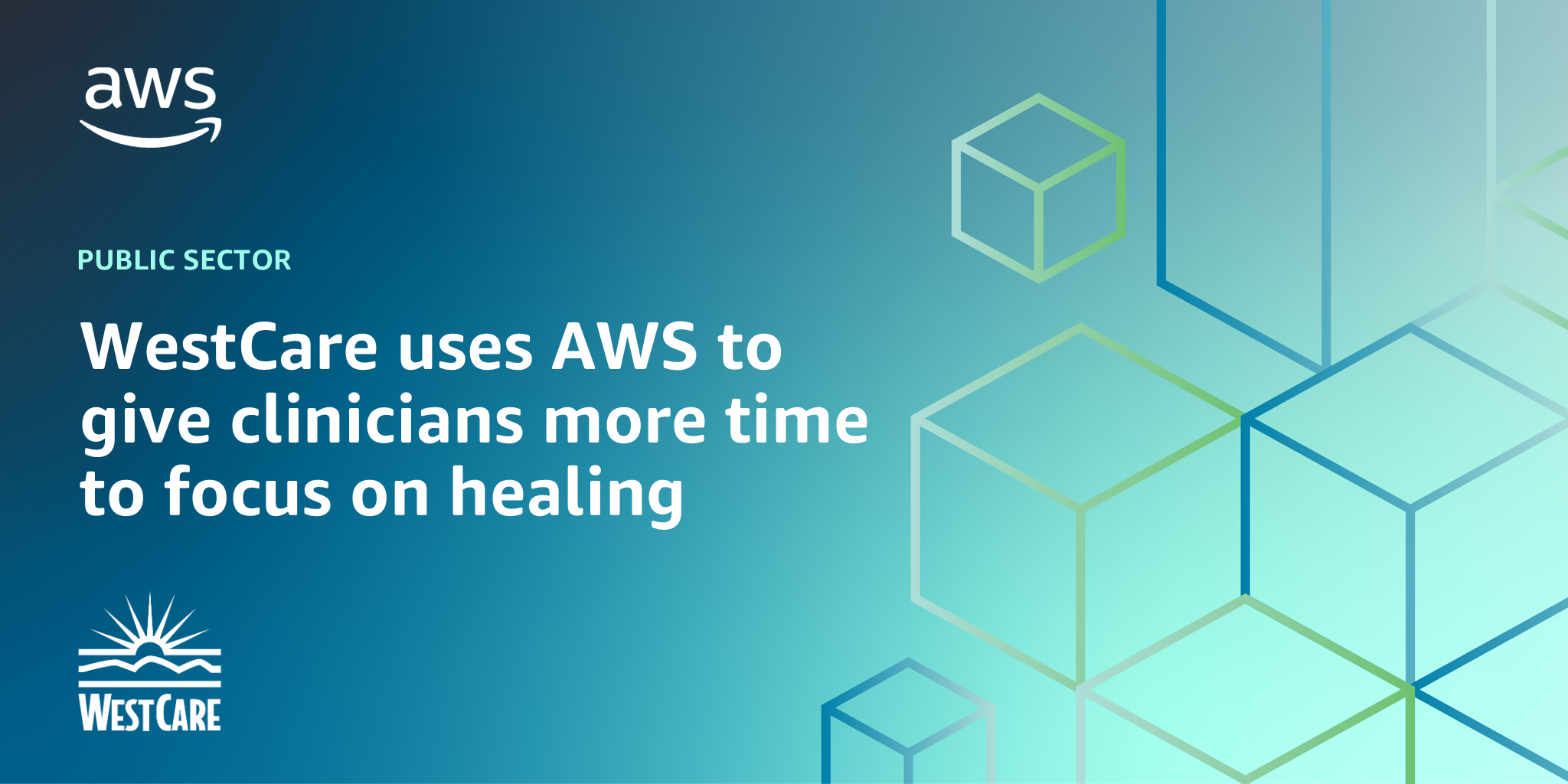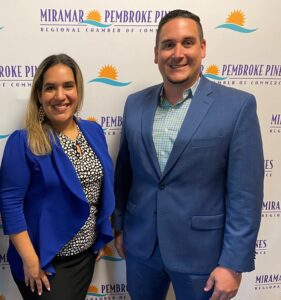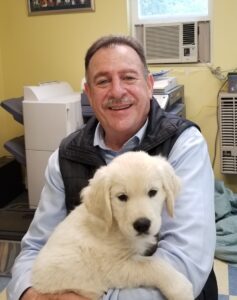For over 50 years, WestCare has been guided by a simple yet profound maxim: Uplifting the Human Spirit. This principle has been the bedrock of their work, from their origins as a single substance abuse program in 1973 to their current status as an international network of nonprofits serving over 55,000 lives annually. Today, WestCare is a worldwide family of nonprofit organizations providing treatment and rehabilitation, mental health and wellness, emergency support, housing opportunities, education and prevention, criminal justice, domestic violence, and veterans services.
In the face of a behavioral health crisis—marked by opioid and fentanyl epidemics, rising mental health needs, and a critical shortage of qualified healthcare workers—WestCare’s mission called them not just to serve, but to innovate. With support from the Amazon Web Services (AWS) Imagine Grant that provides both cash and AWS credit funding to registered nonprofits, WestCare launched their Strategic Project for Integrating Resilient and Intelligent Technologies (SPIRIT). This transformative initiative uses the power of the cloud to give clinicians their most valuable resource back: time to focus on healing.
The SPIRIT project directly addresses the staggering administrative burden placed on clinical staff, which is a mission-critical threat that’s consuming time that could be spent in direct, life-saving interaction with clients. The project’s impact extends far beyond operational efficiency; it represents a fundamental shift toward technology-enabled care that allows WestCare to better serve the 55,000 individuals and families who depend on their services each year.
In this post, we will explore how WestCare uses AWS services to transform healthcare delivery and reduce administrative burden.
When paperwork becomes a barrier to healing
The central problem the SPIRIT project addresses is not a minor inconvenience—it’s a threat to WestCare’s ability to deliver care. In 2023 alone, WestCare’s clinicians spent over 230,000 hours on clinical documentation. This immense volume of paperwork consumed time that could have been spent having direct, life-saving interaction with clients.
The impact this had on clinicians was not sustainable. They frequently reported having to choose between delivering quality care and completing compliance paperwork, often taking documentation home. This eroded their work-life balance and contributed significantly to burnout and turnover in a field already facing workforce shortages.
WestCare understood that one cannot simply “add AI” to a legacy system and expect success. They needed a comprehensive approach that would modernize their foundational technology while intelligently augmenting their clinical workflows. This dual strategy of “fixing the foundation before building the skyscraper” would mitigate significant technical risk and demonstrate a mature approach that prioritized long-term, sustainable innovation over short-term features.
A two-pronged approach to innovation
WestCare’s relationship with AWS spans more than a decade and has been foundational to their growth and digital transformation. They first migrated production workloads to AWS to solve persistent connectivity and performance issues for their many rural facilities. Today, AWS remains their partner of choice because of its unparalleled scalability, robust security, HIPAA compliance, and high reliability.
For the SPIRIT initiative, WestCare implemented a comprehensive AWS architecture designed to achieve their strategic goals:
- Amazon Bedrock (with Cohere LLM) powers the core generative AI engine for creating draft clinical documentation from existing Electronic Health Record (EHR) data, reducing documentation time by an estimated 50 percent.
- Amazon Elastic Compute Cloud (Amazon EC2) hosts a fully automated Jenkins CI/CD pipeline for their EHR platform, replacing slow, error-prone manual processes and shortening software release cycles by an estimated 50 percent.
- AWS Glue, Amazon Simple Storage Service (Amazon S3), and AWS HealthLake create ETL jobs to transform, store, and query PostgreSQL data in FHIR format, providing interoperability for data exchange via APIs.
The AWS Imagine Grant funds were instrumental in allowing WestCare to hire the specialized talent needed to drive this initiative forward. The cash funding component enabled them to secure a dedicated DevOps engineer and an EHR integration engineer—the human engines that turned their vision into reality.
The first pillar of the project involved a fundamental re-architecture of the development and deployment processes for WestCare’s proprietary, certified EHR platform: the Clinical Data System (CDS). The second pillar integrated generative AI into their CDS to directly tackle the documentation crisis, automating the creation of draft clinical documentation including assessments, treatment plans, and case notes.
Recognizing the challenge from direct clinical oversight, WestCare’s chief clinical officer proposed integrating generative AI as a strategic way to reduce administrative burden. Working collaboratively, the chief clinical officer, the vice president of software development, and WestCare’s engineering team developed and refined prompt engineering so the AI could produce accurate, compliant, and contextually meaningful draft documentation.
“We saw an opportunity to bring together clinical insight and technical expertise to solve one of the most pressing barriers to care. By designing prompt engineering hand-in-hand with our software development team, we’re creating tools that give our clinicians more time for what matters most—human connection with clients.”
– Dr. Jason Engel, chief clinical officer at WestCare
“This project is a testament to what can happen when technology and clinical leadership move forward in lockstep. By blending AWS capabilities with a deep understanding of clinical workflows, we’re shaping a system that truly supports our mission.”
– Diane Ludens, vice president of software development at WestCare
Measurable impact on mission delivery
While much of WestCare’s work is foundational, they are already observing tangible results and tracking progress against ambitious, data-backed goals. The implementation of their new DevOps pipeline has significantly improved their development team’s efficiency, allowing them to deploy new releases and features more quickly and reliably while reducing their enhancement request backlog.
WestCare is tracking progress toward specific outcomes that directly impact mission delivery:
- Clinical productivity: 50 percent reduction in documentation time, freeing up over 115,000 hours of clinician time annually for direct patient care
- Care access: 20 percent increase in patient throughput, reducing wait times for critical services
- Workforce stability: 35 percent reduction in provider burnout, improving staff retention and morale
- Development velocity: 50 percent faster release cycles, enabling more rapid delivery of new features
- System reliability: 99.9 percent uptime, allowing consistent access to critical patient data
Beyond the numbers, the SPIRIT project accelerates WestCare’s mission by addressing the qualitative, human-centered aspects of care. By automating administrative tasks, this technology empowers clinicians to reinvest time in the human-to-human connection that is the very heart of healing.
Crucially, WestCare recognized that deploying generative AI into a clinical setting required a robust governance framework. Before any clinician could access the tool, they completed a training program co-led by their chief clinical officer and signed a “Generative AI Technology Acceptable Use Acknowledgment.” They also implemented a “Consent for Use of Artificial Intelligence” form, giving clients the right to opt-out of having these tools used in connection with their record.
Key insights for nonprofit technology innovation
Based on their experience, WestCare offers valuable guidance for nonprofit peers considering similar technology projects. They emphasize that building governance structures first isn’t a barrier to innovation, but rather a great enabler. By addressing ethical and clinical risks head-on, organizations create the psychological safety necessary for staff to embrace new tools, ensuring technology doesn’t outpace policy and ethical frameworks.
Success in technology implementation starts with addressing real organizational challenges rather than following trends. WestCare recommends beginning with mission-critical pain points, identifying the biggest bottlenecks preventing service delivery to the community, then seeking technology solutions that precisely address these challenges. They also stress the importance of investing in people and partnerships alongside platforms—the AWS Imagine Grant’s assistance in funding human expertise proved crucial, as skilled engineers who can translate strategy into code often provide higher returns than software or infrastructure alone.
“To our fellow leaders in the nonprofit sector, we know that the journey of digital transformation can be daunting. It is a path we must walk together. We are committed to sharing what we learn, and we believe that by collaborating, we can build a more resilient, effective, and compassionate social sector for all.”
– Dwayne Stevens, chief information officer at WestCare
How You Can Support WestCare
The challenges facing the behavioral health sector are immense—but so are the opportunities for innovation, healing, and hope. The SPIRIT initiative is only the beginning, and your support can help us continue to transform lives.
Every day, our teams across the United States and its territories work to Uplift the Human Spirit through compassionate care and innovative solutions. Partnerships with organizations like AWS make this progress possible, and the generosity of individual donors helps us expand access to care and healing.
If you’d like to join us in this mission, you can:
- Learn more about our programs and impact by visiting westcare.com.
- Support our work directly through a donation that helps bring hope, innovation, and healing to more individuals and families.
Together, we can create a future where clinicians have more time to heal and communities have greater access to the care they deserve.




